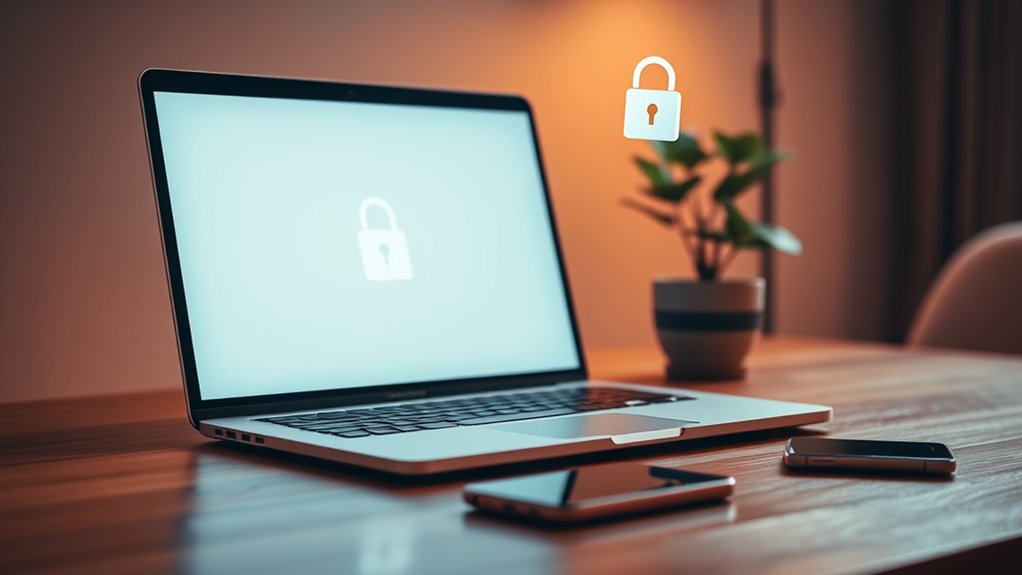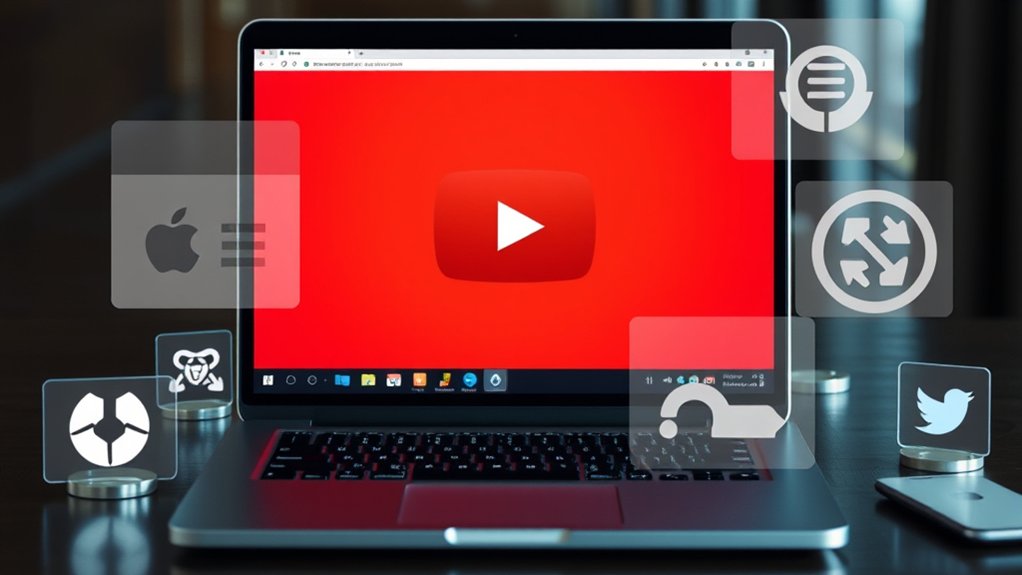To maintain anonymity online, individuals should utilize tools such as Virtual Private Networks (VPNs) and the Tor browser, which encrypt data and conceal users’ identities. Secure communication services further improve privacy. Additionally, managing cookies, disabling JavaScript, and using secure operating systems like Linux can reduce tracking risks. Temporary email services and fake data usage help minimize digital footprints. Understanding these practices is essential for maneuvering the complexities of online privacy effectively, offering users protection in a digital environment.

In an increasingly interconnected digital environment, the imperative for online anonymity has gained prominence, especially as individuals seek to protect their personal data and privacy. Anonymity, defined as the concealment of identifying information online, serves to safeguard personal data, yet it bears dual potential for both positive and negative consequences.
To navigate this complex terrain, individuals utilize technological tools such as Virtual Private Networks (VPNs) and the Tor browser, which improve privacy through encryption and IP address masking. VPNs function by encrypting online traffic, thereby obstructing unauthorized access to user information. The Tor browser, conversely, employs layered encryption, allowing users to navigate the web with heightened anonymity. Additionally, using encrypted communication tools can further enhance security while online. Many users also consider temporary email services to further shield their identities when corresponding electronically.
Moreover, platforms such as DuckDuckGo offer secure search capabilities without tracking user activities, a marked departure from traditional search engines. This underscores a significant need to protect personal information while conducting online research.
While privacy highlights the concealment of actions, anonymity directly obscures identity. Users must recognize the thin line between responsible anonymity, which protects whistleblowers and nurtures free speech, and its malicious use linked to cyberbullying or illegal illicit activities. Legal systems often struggle to balance these diverging uses. Anonymity’s impact on free speech, particularly in oppressive regimes, accentuates its importance while raising ethical concerns regarding accountability.
Practical approaches to maintaining anonymity include managing cookies, disabling JavaScript, and using secure operating systems like Linux that strengthen privacy controls. Individuals may further employ services that support email aliasing, virtual credit cards, or fake data for improved security while minimizing their digital footprints.
As digital footprints expand, individuals must regularly engage in data cleanup, being cautious about the personal information shared on social media. The precarious nature of public Wi-Fi requires users to remain vigilant about online activities, thereby minimizing exposure to potential threats.
Even though anonymity promotes personal freedom, users must weigh the associated risks before implementing these tools, thereby preserving their right to privacy in the digital era.
Frequently Asked Questions
Is It Legal to Remain Anonymous Online?
The legality of remaining anonymous online is complex and varies by jurisdiction. International agreements recognize anonymity as part of the right to freedom of expression, though this right may be limited for legitimate interests, such as protecting victims.
Courts often evaluate anonymity cases through balancing tests, weighing free speech against defamation claims. Moreover, societal and technological challenges complicate adherence to anonymity, highlighting the need for a nuanced approach to these legal frameworks.
Can I Use My Real Name While Being Anonymous?
Using a real name when attempting to remain anonymous is typically discouraged. Experts highlight that revealing real identity can compromise online security, linking activities to one’s offline persona.
For instance, a 2022 study indicated that 74% of users experienced privacy breaches as a result of identity exposure. Furthermore, platforms often track user data, further eroding anonymity.
Instead, employing pseudonyms and fictional identities is recommended as a more effective means of safeguarding personal information online.
How Does Anonymity Affect Social Media Use?
Anonymity considerably influences social media use by altering user behavior and interaction dynamics. Research indicates that anonymous users are more likely to engage in sensitive discussions (Smith, 2021).
Nevertheless, this lack of accountability can lead to negative actions, such as trolling (Johnson, 2022). Conversely, anonymity nurtures moral courage, allowing users to express dissenting opinions without fearing repercussions, thereby enhancing civic engagement (Doe, 2023).
Yet, the potential for misinformation remains a vital concern, complicating online trust.
Will Using a VPN Guarantee My Anonymity?
Using a VPN does not guarantee anonymity online.
Even though VPNs mask IP addresses and encrypt internet traffic, they can still be linked to personal credentials because of payment requirements.
Moreover, VPNs may slow internet speed, revealing usage patterns.
Experts stress that absolute anonymity is unachievable with a single tool.
Instead, a diverse approach involving secure browsers and private search engines is crucial for enhancing online anonymity and protecting personal privacy.
Can Companies Track Me Even When I’M Anonymous?
Companies can certainly track users even when measures to remain anonymous are employed.
Techniques such as browser fingerprinting and IP tracking can create persistent identifiers. According to recent studies, these methods can yield 30% more user interactions, complicating anonymity efforts.
Additionally, session data can inaccurately group user activity. In spite of privacy regulations like GDPR, companies often exploit loopholes to gather data whilst maintaining compliance, thereby challenging user anonymity across various platforms.









